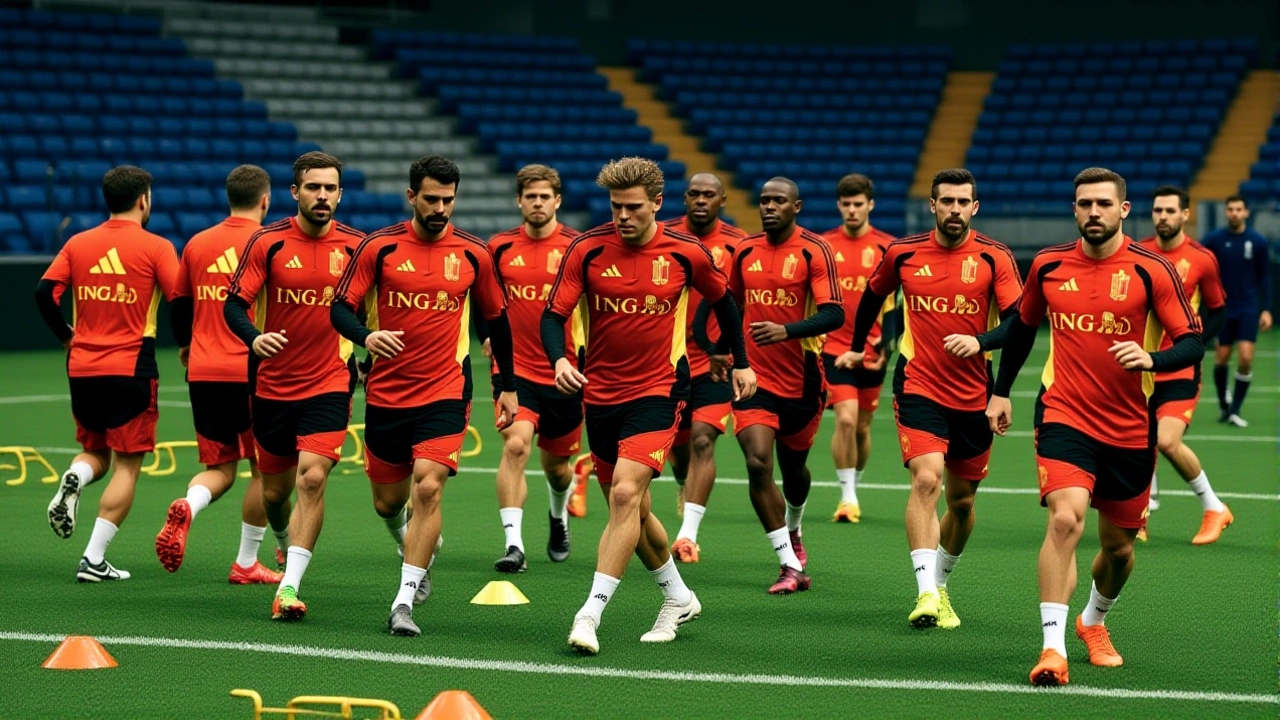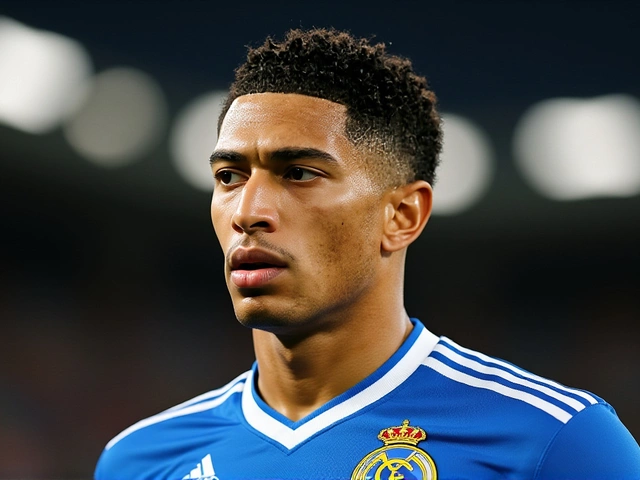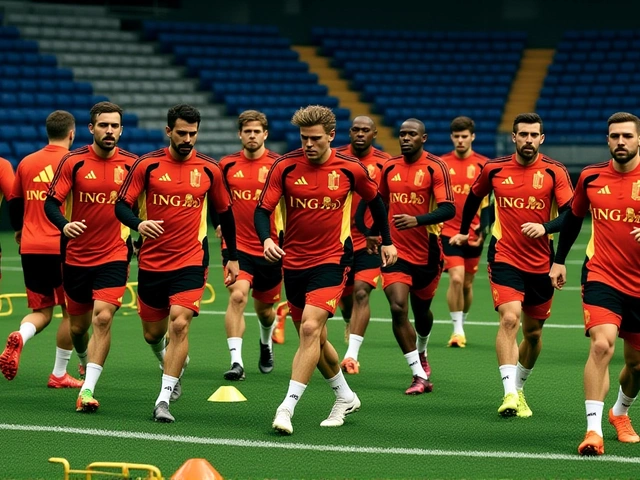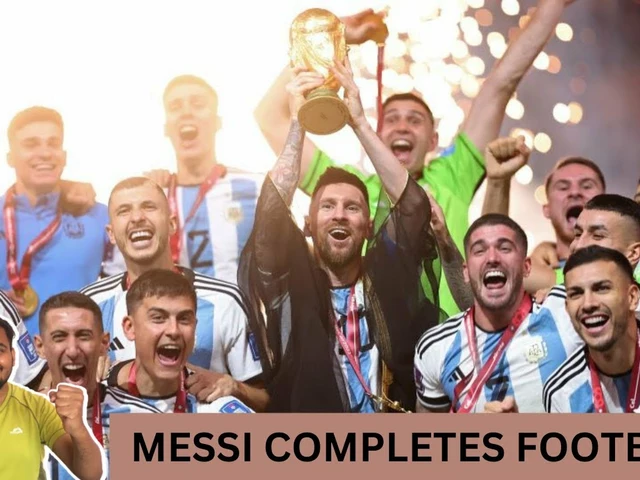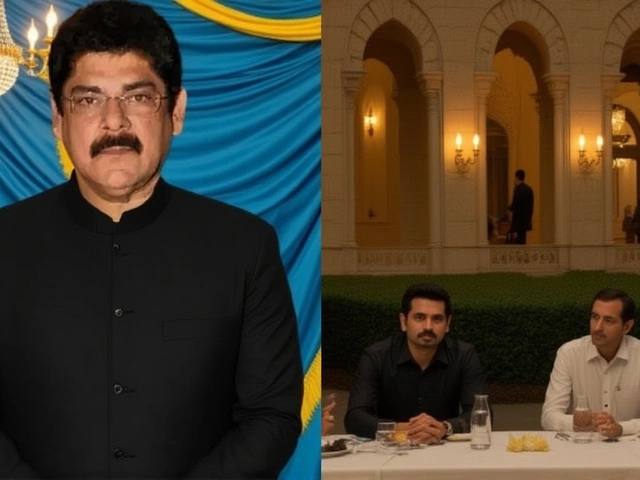Belgium’s national football team sealed their place at the 2026 FIFA World Cup with a dominant 7-0 thrashing of Liechtenstein on Tuesday, November 18, 2025, in front of a roaring home crowd. The win wasn’t just another qualifier—it was the final, emphatic stamp on a flawless campaign, confirming Belgium’s fourth straight World Cup appearance. With the match ending at 90'+2, the Royal Belgian Football Association celebrated not just the result, but the continuity of a golden generation that’s refused to fade. The goals came fast, furious, and precise: Hans Vanaken opened the scoring in the third minute, and by halftime, Jérémy Doku had already doubled the lead with a pair of clinical finishes. The second half? Pure surgical demolition.
A Perfect Campaign, Sealed in Blood and Sweat
Belgium didn’t just win Group I—they owned it. Eight matches, zero losses. Five wins, three draws. Twenty-two goals for, none against in their final three games. With 18 points, they finished three clear of Wales, who scraped through in second. This wasn’t luck. It was execution. The Royal Belgian Football Association has quietly rebuilt since the 2022 World Cup, blending youth like Doku and De Ketelaere with veterans like Vanaken and Mechele. The chemistry? Unshakeable. And when the final whistle blew, players didn’t just celebrate—they embraced. Some cried. Others stared at the sky, as if thanking the ghosts of past Belgian teams who never made it this far.
The Goals That Broke Liechtenstein’s Spirit
The scoring sequence read like a highlight reel compiled by a child with too much time on their hands. Vanaken’s opener—just 17 seconds after kickoff—was a low, driven finish from outside the box. Doku’s first was a darting run down the left, cutting inside like a knife through butter. His second? A curler that kissed the post before nestling in. Mechele’s header, off a corner from Theate, was pure power. Saelemaekers’ strike came from a counter so fast, Liechtenstein’s defenders were still turning around. And then De Ketelaere—23 years old, playing for Atalanta—turned into a predator. Two goals in 90 seconds. The second, a left-footed volley from six yards, sent the stadium into a frenzy. The crowd chanted his name until the 90th minute, when substitute Loïs Openda missed a golden chance, blasting wide from a tight angle. It didn’t matter. The damage was done.
Liechtenstein’s Never-Ending Struggle
Meanwhile, Liechtenstein’s campaign ended as it always does: winless, goalless in the final third, and statistically buried. Eight games. Eight losses. Thirty-one goals conceded. Zero points. Their entire qualifying history—since joining FIFA in 1982—has been one long footnote. They’ve never qualified. They likely never will. And yet, they show up. Every time. With the same modest squad, the same underdog spirit, the same quiet dignity. After the final whistle, their captain, a 34-year-old midfielder from FC Vaduz, walked straight to the Belgian bench and shook hands with every player. No resentment. No bitterness. Just respect. That’s the beauty of football. Sometimes, the scoreboard tells one story. But the human moment tells another.
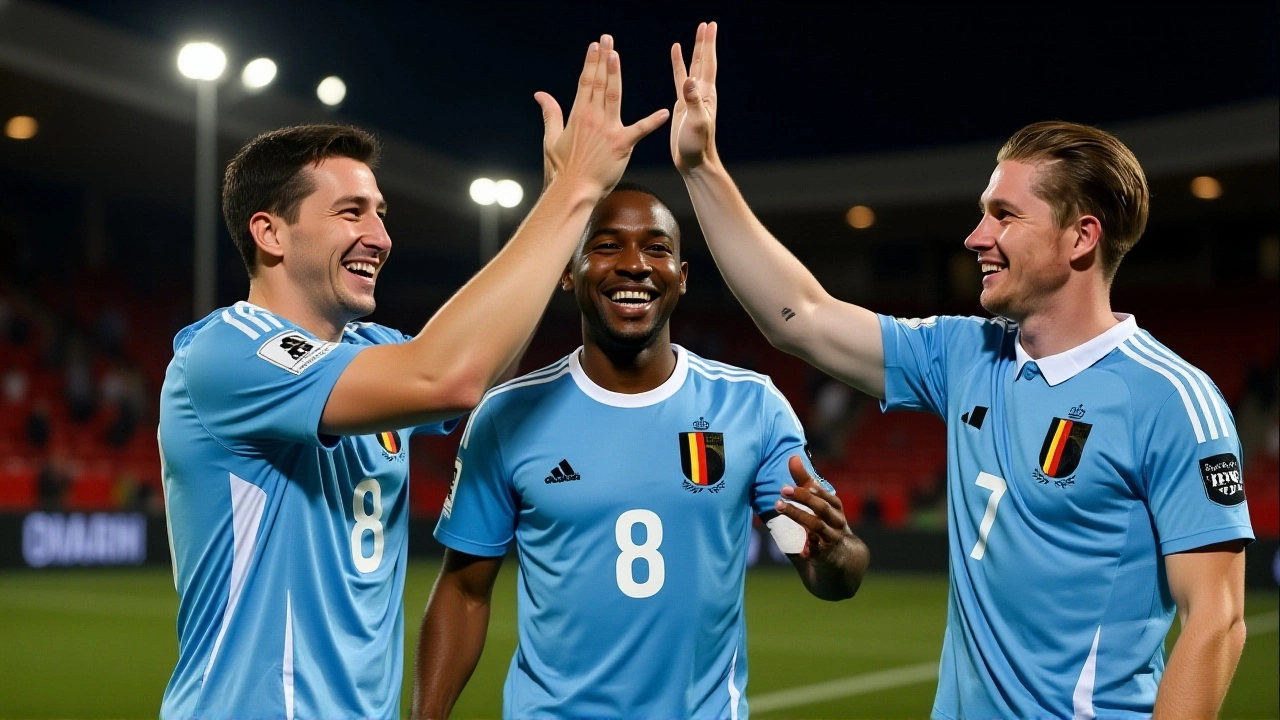
What This Means for Belgium’s World Cup Run
Now, the real work begins. Belgium’s last World Cup, in Qatar 2022, ended in a heartbreaking round-of-16 exit to Croatia. This time, the squad feels different. Younger. Hungrier. More balanced. De Ketelaere and Doku are the new faces, but Vanaken and Mechele bring the spine. The 2026 FIFA World Cup—hosted across Canada, Mexico, and the United States—will be the largest ever, with 48 teams. Belgium will be among the favorites. But they won’t be complacent. The Royal Belgian Football Association has already begun scouting venues, analyzing opponents, and scheduling friendlies against top-tier sides like Brazil and Portugal. Their first match is expected in late June 2026, likely in a humid Texas stadium or a packed Montreal crowd. The pressure? Massive. But so is their talent.
A Legacy in the Making
This 7-0 win ties Belgium’s second-largest margin in World Cup qualifying history—only behind the 8-0 drubbing of Estonia in 2009. But it’s more than a stat. It’s a statement. Belgium has been a top-10 team for over a decade. Now, they’re transitioning from ‘golden generation’ to ‘enduring powerhouse.’ They’ve kept their core intact, added explosive talent, and maintained a culture of professionalism that rivals any in Europe. And while the world watches the rise of Spain’s youth squad or England’s midfield revolution, Belgium is quietly building something more sustainable: consistency. No flash. No drama. Just results.
Frequently Asked Questions
How did Belgium secure automatic qualification with this win?
Belgium clinched automatic qualification by finishing top of UEFA Group I with 18 points from eight matches—five wins and three draws. With Wales in second place at 16 points and only two games left in the group, Belgium’s lead was unassailable. The 7-0 win over Liechtenstein on Matchday 8 guaranteed they’d finish ahead of Wales regardless of other results, locking in their spot in the 2026 World Cup finals.
Who were the standout performers in the 7-0 victory?
Jérémy Doku led the charge with a brace, while Charles De Ketelaere scored two goals in 90 seconds to seal the win. Hans Vanaken opened the scoring, Brandon Mechele added a powerful header, and Alexis Saelemaekers netted the fifth. Defender Thomas Meunier and midfielder Nicolas Raskin also provided crucial assists. The entire team, especially the midfield trio of Vanaken, Raskin, and Tielemans, controlled the tempo with precision.
Why has Liechtenstein never qualified for a World Cup?
Liechtenstein, with a population of just 39,000, lacks the player pool and infrastructure to compete with larger European nations. Their national team relies heavily on amateur players from domestic clubs, with few professionals playing abroad. In 2026 qualifying, they conceded 31 goals in eight games—more than any other team in Europe. They’ve never won a World Cup qualifier since joining FIFA in 1982.
Where will Belgium play their 2026 World Cup matches?
The 2026 World Cup will be hosted across 16 cities in Canada, Mexico, and the United States. Belgium’s group stage matches are likely to be in one of the larger venues—such as MetLife Stadium in New Jersey, AT&T Stadium in Texas, or Estadio Azteca in Mexico City. The exact draw won’t be confirmed until April 2026, but Belgium will be seeded in Pot 1, meaning they’ll avoid other top teams in the group stage.
Is this Belgium’s best team since the 2018 World Cup?
It’s arguably their most balanced. The 2018 squad had De Bruyne, Hazard, and Lukaku at their peak—but lacked depth. This 2026 group has younger, faster attackers like Doku and De Ketelaere, a more disciplined defense led by Mechele and Castagne, and midfielders like Vanaken who control the tempo. While they lack a single superstar like Hazard, their collective strength and tactical discipline make them more dangerous over a long tournament.
What’s next for the Royal Belgian Football Association?
The RBFA has already scheduled three warm-up matches in March and June 2026 against Brazil, Portugal, and the Netherlands to fine-tune tactics. They’re also evaluating youth talent from the Belgian Pro League, particularly players under 21, to build depth for the World Cup. With the tournament in North America, they’re also studying climate conditions and travel logistics—something they didn’t need to worry about in Qatar.
